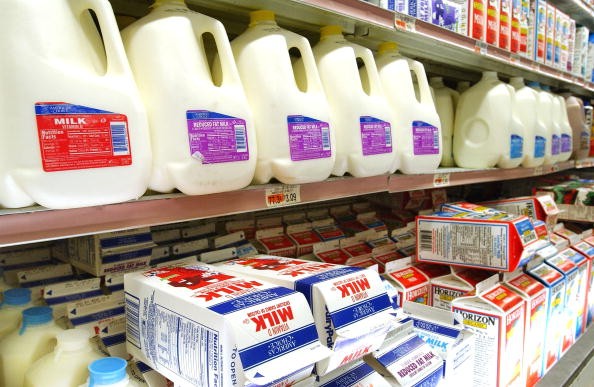
Anytime you buy food, you see those phrases on the packaging. "Sell by this date." "Use by that date." "Best use by this other date." Some packages of food may have only one of these phrases and others may have more.
These phrases deal with how fresh the food item is and may indicate when you should throw it out rather than eat it. But what are the differences in their meaning?
The labels are a voluntary system and are based on what the manufacturers decide is best for the quality of their products. The exception is milk, which some states require to carry sell-by dates.
The sell-by date is the last day that a store can sell that item. It has to be sold or removed from the shelf by that time. You can use the product after that date. The rule of thumb is that the sell-by date is about two-thirds of the shelf-life of that product. For example, refrigerated milk is usually fine for a week after the sell by date and refrigerated eggs are usually good for 3 to 5 weeks. When you are shopping, reach for the freshest milk or eggs or whatever, which will be the containers with the sell-by date that is furthest off.
The best-by date tells you by which date you should eat the product to enjoy the ideal quality. Again, you can eat or drink this item after that date, but the quality will not be as high. Bread might be a bit stale, but perfect for making French toast, for example.
The use-by date is the last day that you can enjoy the item at a good quality. It does not always mean that the food item has gone bad, but after this date, the quality is not going to be good.
You should always use some common sense when deciding whether something is safe to eat. However, smell and taste are not good indicators of whether or not a food is safe to eat, said Bob Brackett, Ph.D., CFS, Director of the Institute for Food Safety and Health at the Illinois Institute of Technology and a spokesperson for the Institute of Food Technologists.
Remember also that how food is stored is important, as well. Canned goods can lose quality if they are stored in a warm place. Refrigerated or frozen food should be brought home and put into the refrigerator or freezer as soon as possible.
You can see an infographic on date labeling and food waste at http://futurefood2050.com/food-waste-infographic-gallery/.

